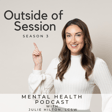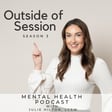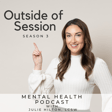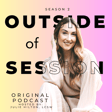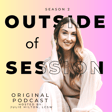
Psychedelics in Mental Health: Friend of Foe? Part 2
In Part Two of the season finale, we're continuing the conversation about psychedelic-assisted therapy. Whether you're a skeptic or curious explorer, this is an episode you won't want to miss! Julie sits down with Laura Mullis to discuss her professional encounters with plant-based medicines like psilocybin and Ayahuasca. Together, they explore the potential benefits and ethical considerations surrounding this unconventional therapeutic approach.
About today's guest:
Laura Mullis has been working in the healing profession for 15 years. For the past 10 years she has been on a quest to find the fastest way to help people heal with the least amount of suffering. In recent years this quest has brought her into the field of psychedelics. In this podcast she shares her knowledge, experience and sometimes personal opinion in her role as a psychedelic coach on the topic of psychedelics in mental health
Resources:
https://docs.google.com/document/d/1VNzkOqRlnuL8WDRlRPeIxQaymOuviKoEraB332GvEaw/edit?usp=sharing
Get in touch with Laura:
https://www.triumph-center.net/
